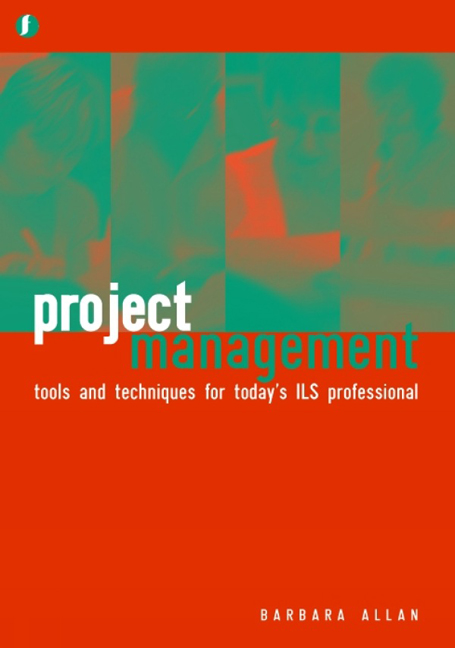Book contents
- Frontmatter
- Contents
- List of tables
- List of figures
- Acknowledgements
- Part 1 Introduction
- Part 2 The project life cycle, systems and processes
- 2 The project life cycle and project analysis
- 3 Planning the project
- 4 Implementation
- 5 Evaluation and dissemination
- 6 The money side of projects
- 7 Using ICT to support the project
- Part 3 Projects and people
- Appendix A The language of funding
- Appendix B Resources
- Index
5 - Evaluation and dissemination
from Part 2 - The project life cycle, systems and processes
Published online by Cambridge University Press: 08 June 2018
- Frontmatter
- Contents
- List of tables
- List of figures
- Acknowledgements
- Part 1 Introduction
- Part 2 The project life cycle, systems and processes
- 2 The project life cycle and project analysis
- 3 Planning the project
- 4 Implementation
- 5 Evaluation and dissemination
- 6 The money side of projects
- 7 Using ICT to support the project
- Part 3 Projects and people
- Appendix A The language of funding
- Appendix B Resources
- Index
Summary
Introduction
This chapter is concerned with project evaluation and methods of disseminating the outcomes of the project. A formal project evaluation process is often required by the funders or sponsors of projects and, in all types of projects, they are an important means of learning from the experience. Individuals working on small, local projects may feel pressurized to move on to the next project as soon as their current one is complete but if they fail to reflect on and evaluate their work then there is the danger that mistakes will be repeated and lessons not learned. It is common practice to disseminate the outcomes of a project both as a means for gaining publicity for the project and ILS and also to help share good practice and lessons learnt within the library and information profession. Dissemination of the outcomes of the evaluation process is considered in the second part of this chapter, which covers reports, conference papers and presentations, and websites.
Project evaluation
An important part of the project completion process is the project evaluation, which is carried out for a number of different reasons. As a management tool it enables the project manager and others to identify their effectiveness, areas of strength and weakness, and lessons for the future. The outcomes of the evaluation process such as reports may be used to disseminate good practice and lessons learnt within the information and library community. In this way they can act as a marketing tool and also as a means of career progress for individuals. The funders or sponsors of projects will normally require some kind of evaluation process to be carried out. Finally a user group or other agency may become involved in evaluating the project.
The project evaluation process involves finding answers to questions such as:
• Did the project achieve its outcomes?
• Did the project achieve any unexpected outcomes?
• Did the project manage to be on time and within budget, and to produce work to the required quality?
• What was the impact of the project on customers, colleagues and other stakeholders?
• What was the impact of the project on other library systems and services?
- Type
- Chapter
- Information
- Project ManagementTools and techniques for today's ILS professional, pp. 73 - 92Publisher: FacetPrint publication year: 2004



